Liver Qi Stagnation–What Is It and How to Deal?
Understanding Liver Qi Stagnation
Are you frustrated easily? Feeling a lot of angst? Possibly aches in your side, or feelings of a pit stuck in your throat? Do you get overwhelmed by emotional stress? Are you waking up at night?
Liver Qi Stagnation might be what’s going on. Read on to learn more about what it is and what to do about it.

In Traditional Chinese medicine (TCM), the concept of Qi, plays a crucial role in maintaining overall health and well-being. One of the most common imbalances and pattern differentiation within the body is known as Liver Qi Stagnation. This condition is rooted in TCM principles, where the Liver is not just a physiological hunk of tissues that filters blood and hormones but a complex system responsible for the smooth flow of Qi, emotional regulation, blood and hormone balance, and is an essential aspect of the Wood element within yourself. This article will explore Liver Qi Stagnation, its causes, symptoms, and approaches to restore balance.

Understanding Liver Qi Stagnation
According to TCM, the Liver is responsible for the free flow of Qi, which is essential for the harmonious functioning of the body. When the liver's energy becomes stagnant, the flow of Qi is disrupted, leading to various physical and emotional imbalances. Liver Qi Stagnation is often associated with prolonged stress, suppressed emotions, and a sedentary lifestyle.
Functions of the Liver System
The Liver, often referred to as the "Army General" in Traditional Chinese Medicine plays a pivotal role in maintaining the free flow of Qi throughout the body. As a key component of the Wood element, the Liver is responsible for storing blood and regulating its circulation volume, adapting to activity levels. It assists other organs in the proper circulation of body fluids, preventing stagnation. The Liver's influence extends to governing the tissues, sinews, and tendons, contributing to physical vitality. Additionally, it has a connection to the eyes, is associated with the season of Spring, and resonates with the Sour flavor.
In its partnership with the Gallbladder within the Yin Yang framework, the Liver helps manage the emotional landscape. When out of balance, feelings of anger or angst may become predominant. The Liver also stores the Blood and collaborates with the Spleen and Heart in blood production. Notably, it houses the aspect of the Shen known as the "Hun" or Ethereal Soul. This intricate network of functions underscores the Liver's vital role in maintaining harmony within the body and mind in TCM philosophy.
Governs the tissues, sinews, and tendons
Opens to the eyes
Associated with the season of Spring
Resonates with the flavor Sour
Yin Yang paired with the Gallbladder
When out of balance, the most predominant emotion is anger/ angst, and sadness
Element association- Wood
Stores the Blood, assists Spleen and Heart to produce Blood
Houses the aspect of the Shen known as the Hun- or Ethereal Soul
Causes of Liver Qi Stagnation
Numerous patterns can impact the Liver system ( such as Liver Blood deficiency) and many associated Organs that can become intertwined when the body is off balance ( such as Wood overacting on Earth), but the focus here will be Liver Qi Stagnation. Problems in one’s emotional life are by far the most predominant cause of Liver-Qi stagnation. Especially when emotions such as anger, resentment, and frustration are repressed for prolonged periods of time. This can cause the flow of Qi to be impeded and become stuck.
Emotional Stress
One of the primary causes of Liver Qi Stagnation is emotional stress. The liver is closely linked to the processing of emotions, particularly anger, frustration, and resentment. Prolonged or intense emotional experiences can lead to stagnation.
Dietary Factors
Poor dietary habits, including excessive consumption of greasy or spicy foods, alcohol, and irregular eating patterns, can contribute to Liver Qi Stagnation. These dietary choices can overload the liver, hindering its ability to maintain a smooth flow of Qi.
Sedentary Lifestyle
Lack of physical activity can lead to stagnation in the body's energy flow. Regular exercise promotes the circulation of Qi and blood, helping to prevent and alleviate Liver Qi Stagnation.
Environmental Factors
Exposure to environmental toxins and pollutants can impact the liver's function, contributing to stagnation. Maintaining a clean and toxin-free environment is essential for overall well-being.
Symptoms of Liver Qi Stagnation
Liver Qi Stagnation manifests in both physical and emotional symptoms. Recognizing these signs is crucial for addressing the imbalance and promoting a return to optimal health. Often a feeling of distention and a wiry pulse are enough to diagnose this imbalance. When Liver Qi stagnates we often see physical symptoms, emotional manifestations, and impairment in the body’s Qi and Blood, most often seen in menstruating people, and issues such as PMS, mood swings, and irregular cycles present.
Physical Symptoms
Abdominal bloating or discomfort
A feeling of distension of the hypochondrium, chest, epigastrium, or abdomen
Excessive sighing
Digestive issues, such as constipation or diarrhea
Headaches, particularly tension or vertex headaches
Menstrual irregularities and premenstrual syndrome (PMS)
Distention of breasts before menstruation
Fatigue and lethargy
Tongue: the body color may be normal, or red sides
Pulse: Wiry, especially on the left side
Emotional Symptoms
Irritability and mood swings
Melancholy, depression, moodiness, fluctuation of mental state, “feeling wound-up”, anxiety
Insomnia or disturbed sleep, waking in the night
Difficulty making decisions or feeling stuck in life
Feeling a lump in the throat (known as "plum pit" sensation)
How to Deal with Liver Qi Stagnation
Addressing the causes of liver Qi stagnation such as emotional stressors can make a huge positive impact here. The main treatment principle or intention is to smooth the Liver, and move Qi.
Acupuncture
Acupuncture is a key component of TCM that involves the insertion of thin needles into specific points on the body to stimulate the flow of Qi. Acupuncture can help unblock stagnant energy in the liver, promoting balance and harmony within the body.
Chinese Herbal Medicine
Herbal formulas, prescribed by qualified TCM practitioners, are tailored to address individual imbalances. Common herbs used for Liver Qi Stagnation include Bupleurum, Peony, and Cyperus. Formulas such as Xiao Yao San and Yue Ju Wan are often used.
Dietary Modifications
Adopting a balanced and nourishing diet is crucial for supporting liver health. Emphasize foods that promote the free flow of Qi, such as green leafy vegetables, fruits, and lean proteins. Limit or avoid greasy, spicy, and processed foods, as well as excessive alcohol intake.
Mind-Body Practices
Incorporating mind-body practices like Tai Chi and Qigong can help regulate the flow of Qi and reduce stress. These gentle exercises combine movement, breath control, and meditation to promote overall well-being. A simple Qi Gong activity, known as shaking, is a great activity to help more stuck emotions and energy in the body.
Stress Management
Effective stress management is essential for preventing and addressing Liver Qi Stagnation. Practices such as mindfulness meditation, deep breathing exercises, and regular relaxation techniques can help manage stress levels.
Regular Exercise
Engaging in regular physical activity promotes the circulation of Qi and blood, preventing stagnation. Choose exercises that you enjoy, whether it's walking, jogging, yoga, or other forms of movement.
Body Work
Consider incorporating holistic therapies such as massage, reflexology, and aromatherapy to support overall well-being. These therapies can help release tension and promote relaxation, contributing to a smoother flow of Qi.
Acupressure
Utilizing acupressure points such as Li 4, Yin Tang, GB-34, LR3, Lr-14, SJ-6, and PC-6 can have very positive impacts on the flow of Liver Qi.








Liver Qi Stagnation highlights the interconnectedness of physical and emotional well-being. Recognizing the causes and symptoms of this imbalance allows individuals to take proactive steps toward restoring harmony within the body. Approaches such as acupuncture, herbal medicine, dietary modifications, and mind-body practices, offer effective strategies for addressing Liver Qi Stagnation and promoting overall health and vitality. By embracing these practices, individuals can unlock the flow of vital energy, fostering a sense of balance and well-being in their lives.
🌿 Love What You See? Want It All? This bundle was made for you! 🌿
Get the ultimate herbal wellness collection in one beautifully curated package. This bundle includes:
✨ Essential Tastes Cookbook – Explore the Five Flavors of TCM through immune-boosting, nourishing recipes.
🥗 Spleen Qi Meal Planners – Two full weeks of meal plans (vegetarian and non-vegetarian) to support digestion and energy.
🫙 Herbal Pantry for Everyday Wellness – Learn the top 10 must-have herbs and exactly how to use them at home.
Whether you’re just starting your herbal journey or deepening your practice, this bundle gives you the tools to nourish your body, mind, and spirit—season by season, meal by meal.
✨ Save big and empower your kitchen with centuries of wisdom—naturally. ✨
$70 value for only $45!
Poor digestion got you down?
This weekly meal planner is focused on helping support your digestive system and boost your Spleen Qi.
7 days of meals, recipes and tips!
It comes designed in a PDF format for easy printing- so you can pop it on the fridge for inspiration, or take it to the market with you while you shop.
It comes stocked with:
🗓️ Easy-to-follow weekly meal planner with tasty suggestions for breakfast, lunch, dinner, and snacks each day of the week.
✔️ Grocery checklist
🌿 Helpful tips to help keep your tummy happy.
😋 Yummy recipes
This guide will get you off to the right start!
Check out the new Vegetarian Weekly Planner for another week of delicious recipes ( very easy to add some baked chicken or roasted salmon etc. to any of those recipes too!
🚨UPDATED WITH EVEN MORE DELICIOUS RECIPES!🚨
Prepare to embark on a transformative journey towards enhancing your fertility naturally with the nutritional outlook of Chinese Medicine. This book is the key to nurturing your body, and balancing your hormones.
🍲 Nutrient-rich recipes to nourish your body
🌱 Traditional Chinese Medicine wisdom for hormonal balance
💫 Tips to support your fertility journey
📖 Expert insights on holistic well-being
⭕️ Seed Cycling and more!
Welcome to ✨ HERBAL PANTRY for EVERYDAY WELLNESS✨
Incorporating herbal medicine into your routine doesn’t need to be complicated.
Make a cup of tea…Stir herbs into your soup…Tune in to how you feel.
The beauty of herbal wellness lies in its simplicity and its ability to bring you back into relationship with nature, moment by moment.
This guide introduces the TOP 10 Herbs every budding herbalist needs in their pantry to help elevate your health!
Created by licensed acupuncturist and herbalist Lenore Cangeloso, this beautifully crafted eBook blends Traditional Chinese Medicine wisdom with modern, approachable recipes.
From calming teas to immune-boosting broths and beauty elixirs, you’ll learn how to bring the healing power of herbs into your daily life with ease and intention.
✨ Start your herbal journey today ✨
Your Daily Dose of Herbal Concoctions
DRINK ME is your go-to guide for crafting nourishing, restorative, and delicious elixirs right from your kitchen.
🔥 Inside, You'll Discover:
✅ Easy-to-follow recipes for energy, immunity, digestion & relaxation
✅ The healing properties of herbs & how to combine them effectively
✅ Tips to make herbal infusions, decoctions, and tonics like a pro
💚 Whether you're a herbal enthusiast or just getting started, this ebook will help you create powerful, plant-based remedies to support your mind, body, and spirit.
📥 Grab your copy today and start sipping your way to wellness! 🥄🌸
👉 Download Now
Boost Your Spleen Qi with Ease!
This weekly meal planner is your ultimate guide to nourishing your body and supporting your Spleen Qi with wholesome, vegetarian meals.
✨ What’s Included:
A Full Week of Meals: Holistic recipes for breakfast, lunch, dinner, and a daily snack.
Easy-to-Use PDF Format: Perfect for printing to place on your fridge or take to the market.
Helpful Tips and Inspiration: Stay motivated with handy hints and guidance.
Delicious Recipes: Enjoy a variety of meals that are both nourishing and satisfying.
Transform your meals into tools for better health and vitality—all while keeping it simple and vegetarian-friendly. 🌱
Skin Deep Beauty- Get Glowing, Radiant Skin with Traditional Chinese Medicine
A step-by-step guide to level up your skincare.
—
⭐️ Packed with information to make natural and informed choices
⭐️ Guides to guasha and other amazing techniques
⭐️ Yummy recipes to get glowing from the inside out
⭐️Easy fun recipes for natural skin care
⭐️Afirmmations and more!
This easy-read handbook is a complete guide to dealing with “Liver Qi Stagnation”. It explains what Liver Qi stagnation is and offers various ways to help…
🍵Simple Dietary Advice
☺️Easy Lifestyle Changes
💜Nourishing Self-Care Routines
🏃♀️Gentle exercises
and
📖Delicious Recipes
A nutritional guide that leads you into the importance of the Five Flavors, from the lens of traditional Chinese Medicine. This book also offers a few great recipes to help incorporate this theory into your life and kitchen!
This guide offers:
🌿In-depth explanation of the Five Favors from a TCM perspective and how they impact physiology and digestion.
❣️ Basics of TCM theory and nutritional outlook
😋 Yummy recipes for each flavor profile
🍂 Seasonal Eating Tips
🧘 Mindfulness Prompts
Hardcopy available via Amazon.
Learn how to how simple, everyday herbs can nourish your body, support digestion, boost immunity, and bring calm to your daily routine.
Bone broth is valued all over the world for its delicious taste and highly nutritious components. It is rich in vitamins, minerals, collagen, gelatin, keratin and stock full of amino acids. Read on to learn a super easy recipe!
These foundational books offer a clear and accessible path into the world of Acupuncture and Chinese Medicine. Whether you're studying to become a practitioner or simply curious about the theory behind the treatments, these titles will deepen your understanding and appreciation for this ancient healing system, one thoughtful page at a time.
The article goes over the best professional massage tables available for acupuncturists, massage therapists or other bodyworkers. A long-lasting and high-quality table is key!
A short but very useful guide to support mothers and babies postpartum.
This article explains the basics of abdominal self-massage. It is a great option for increasing self-care, digestive complaints, reproductive issues or low back pain.
Spleen Qi Deficiency is a very common imbalance in Chinese Medicine. This article explains what that means, and what to do about it. It offers lifestyle suggestions as well as food choices, while giving an extensive overview of the theory attached from TCM.
This article offers multiple ways to helps each sinus issues.
Want more protein without the meat? Dive into these easy, tasty plant-based picks!
Discover how acupuncture can calm your mind, balance your body, and support lasting relief from anxiety. Learn what to expect in a session, how it works, and why more people are turning to this natural solution for modern-day stress.
A simple guide to help you find the best acupuncturist for your needs!
By recognizing the manifestations of dampness, identifying its signs and symptoms, and incorporating dampness-clearing foods into your diet, you can work towards restoring balance and promoting overall well-being. This sticle will explain signs and symptoms of Dampness, and offer a few solutions.
Read on to learn the top 3 beauty “secrets” from Chinese Medicine.
This article explains the benefits of cosmetic acupuncture and what t o know if you are also engaging in other aesthetic procedures.
Learn more about the benefits of foam rolling for recovery and longevity.
This article explores the mind-body connection in Chinese Medicine, a concept known as the Shen. It helps explains the 5 aspects of the Shen and their links to Organ Systems and meridians.
This article explains the transformative power of the CHIRP Wheel, a unique spinal relief tool designed to prevent excess pressure on the spine while targeting muscles on both sides of your neck and back. It also offers simple steps for a safe and effective experience!
Learn about Kidney Yang Deficiency in Traditional Chinese Medicine, including signs, symptoms, food choices, and lifestyle tips to restore balance and vitality. Discover a warming recipe to support Kidney Yang health.
Read along for some simple tips to align with the Springtime.
This article explains the Liver Organ System in Chinese Medicine.. and goes into detail about its functions and importance upon governing the smooth flow of Qi, and hence overall well-being.
This article explains the importance of the fascial network and ways to access it for better health.
This article explains how to perform moxa safely at home.
Intro to Red Light Therapy (RLT) and its benefits when used in conjunction with acupuncture.
Product Review of Dose for your Liver, a tasty herbal elixir.
Traveling the world with children is such a rewarding experience, albeit sometimes stressful. Being prepared with natural remedies and a proper first aid kit is essential!
HUNGRY?
This recipe is for a naturally sweetened elderberry gummy! Easy and delicious.
Tasty and Nourishing Roasted Kabocha Squash Recipe. SO simple and delicious!
This simple receipe for nourishing chicken can easily become a staple in your household!
Fireside tonic has been used in natural medicine to help ward off colds and boost digestion. This article offers an east to follow recipe.
Quick pickles are some of my fav dishes- Heres an easy recipe for pickled Daikon Radish!
This simple tea recipe talks about the benefits of goji, da zao, and longan tea, with an easy delicious recipe for vitality and beauty!
This recipe is for turmeric paste, an amazing way to prepare turmeric to make easy and potent lattes, curries, herbal remedies.
This Refreshing Cucumber Salad with rice wine vinegar offers a perfect balance of tangy, sweet, and savory flavors, with a hint of sesame and garlic for a light yet flavorful side dish.
This recipe is for a quick pickled onion, which makes a delicious and healthy addition to many dishes.
Thie quick recipe makes a delightful gingery spinach side dish to accompany any meal.
Lenore Cangeloso is a Board Certified Acupuncturist, Clinical Herbalist and avid writer based in Southeast Portland.










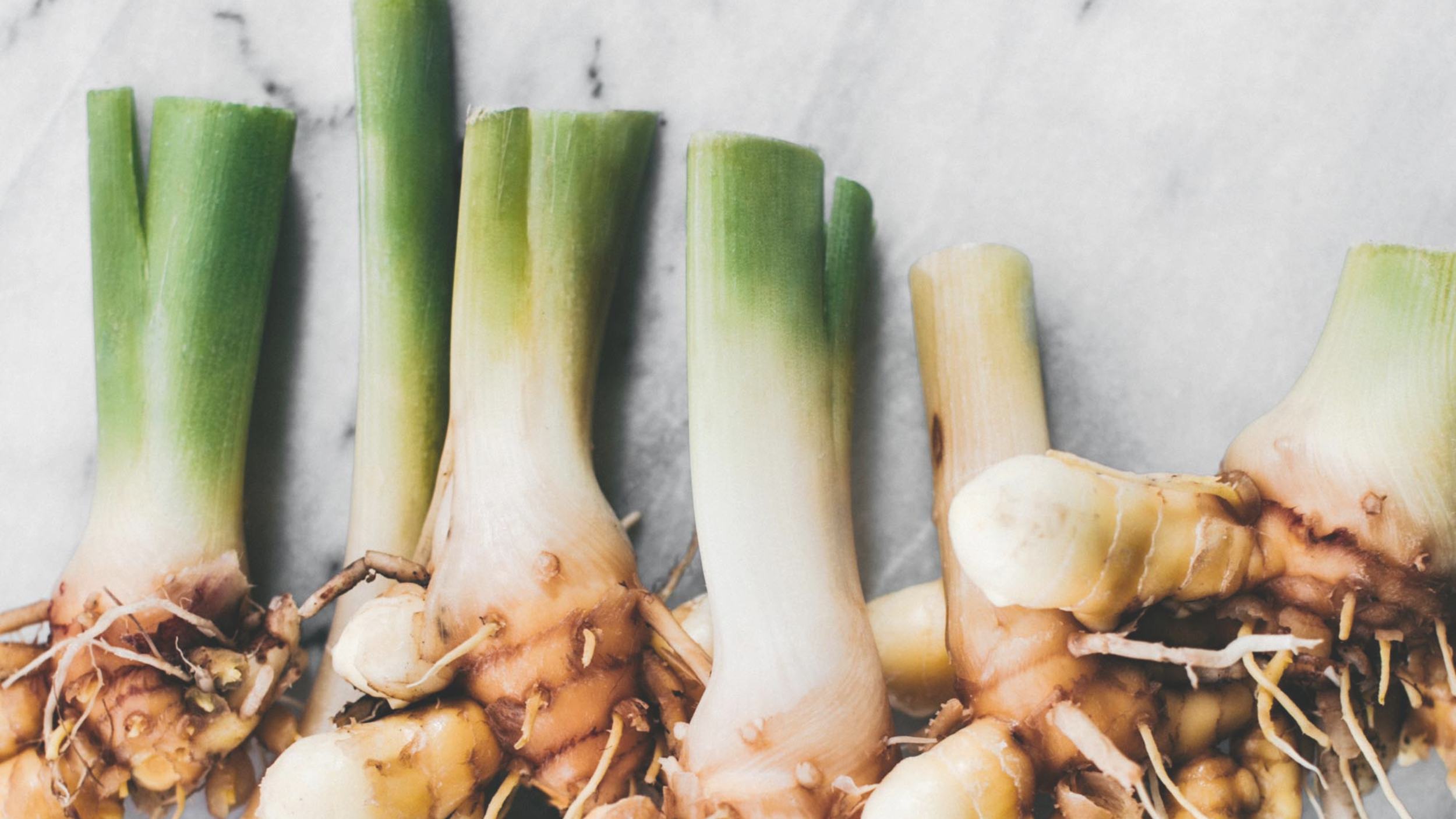





























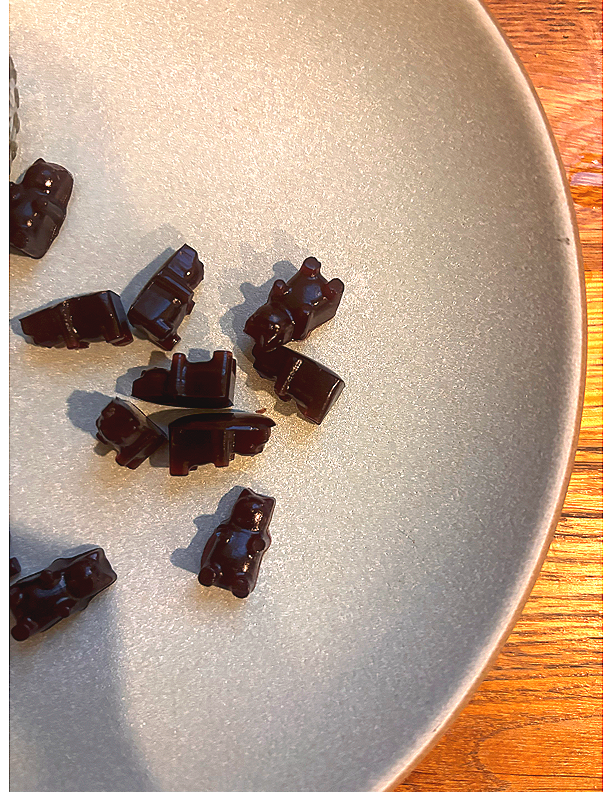







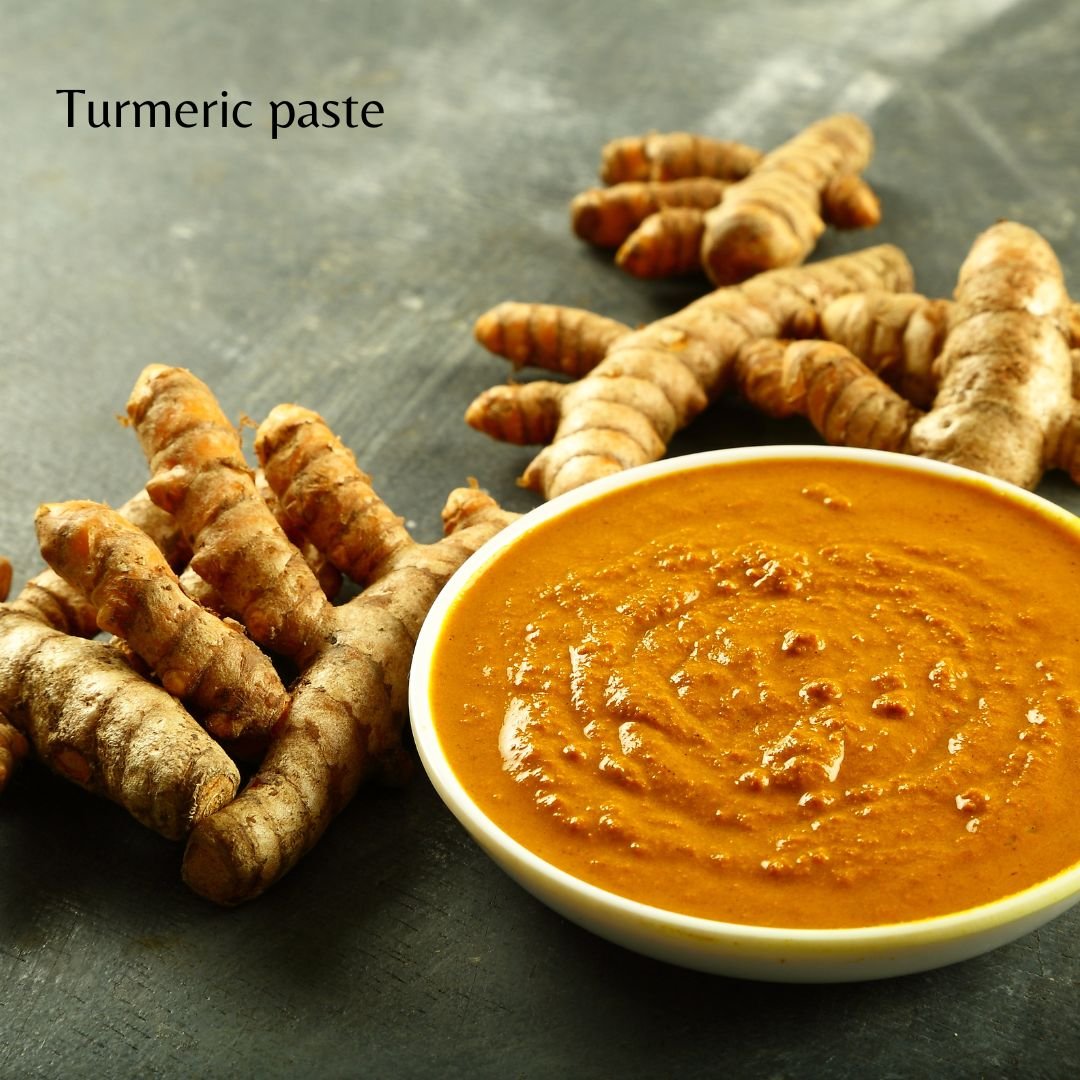





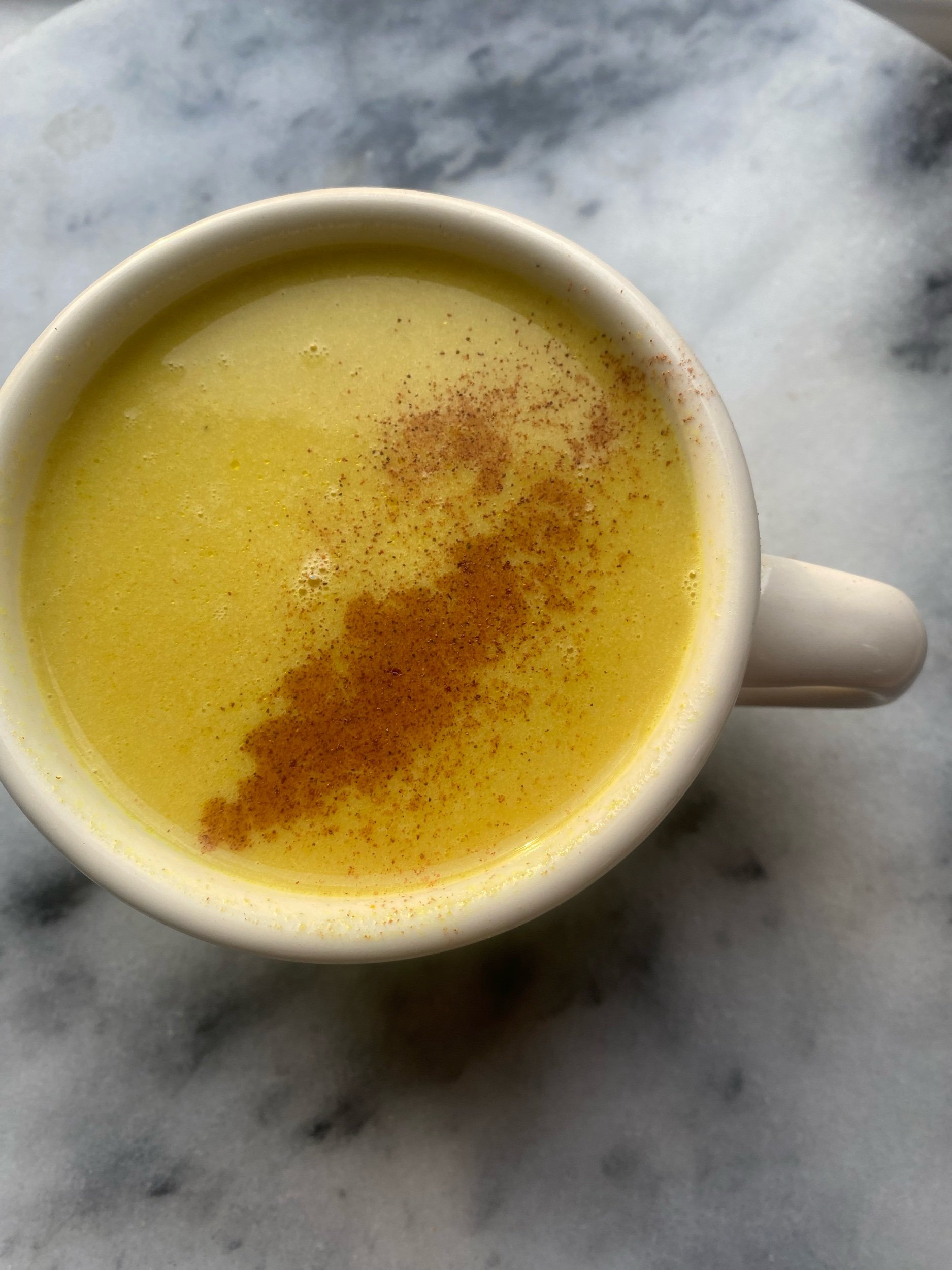

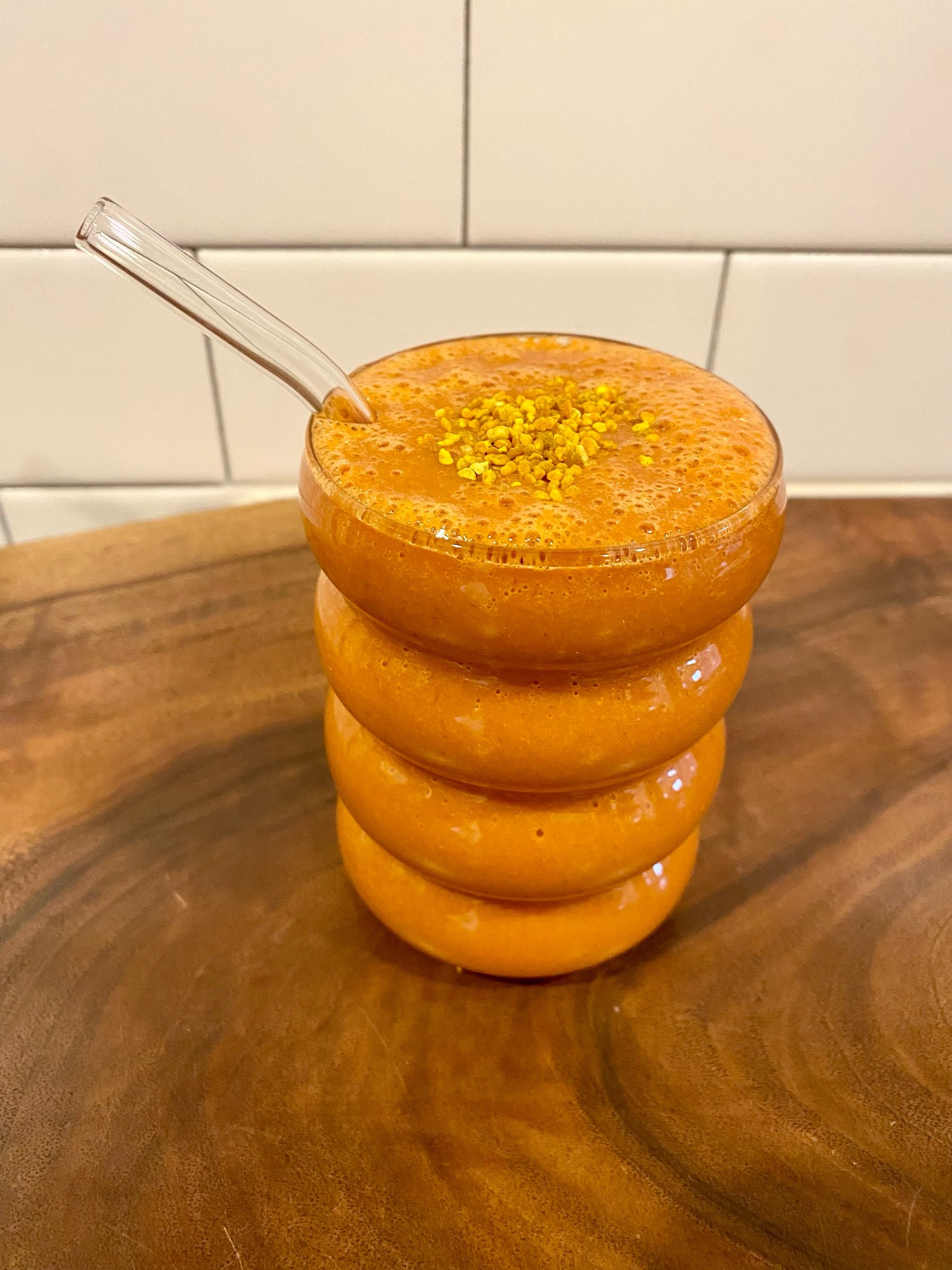
🔥 Your Guide to Safely Practicing Moxa at Home 🔥
Curious about moxa but not sure where to start? This easy, step-by-step guide will show you how to safely use moxibustion at home to ease pain, warm your body, support energy, and especially boost digestive function.
Perfect for beginners and seasoned wellness lovers alike, it’s packed with practical tips, clear instructions, and everything you need to feel confident and cared for. This guide is focused on using premade moxa poles, especially for digestive health and pain relief.
✨ Simple. Soothing. Rooted in tradition.
👉 Download now and light up your self-care routine with the warmth of tradition!